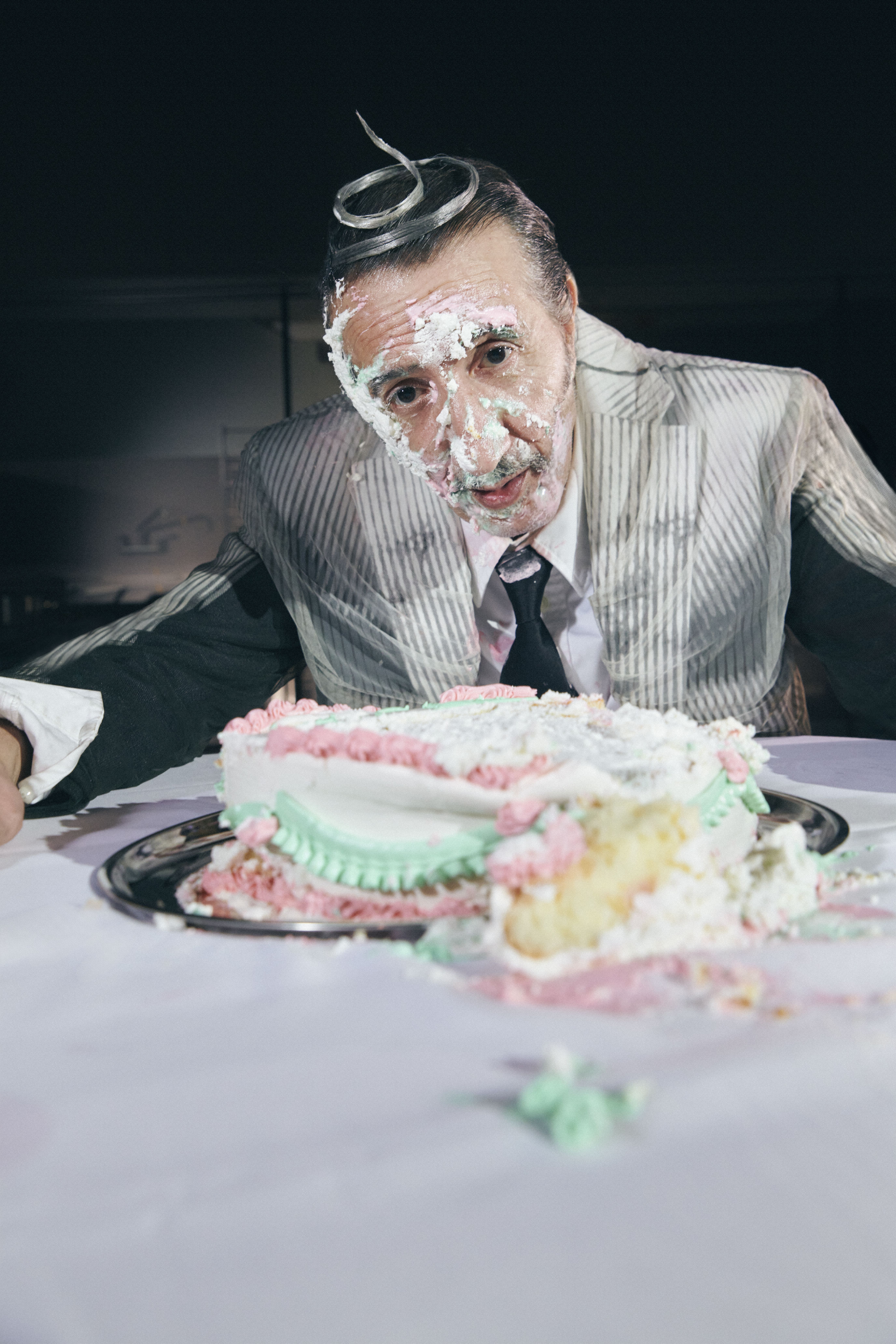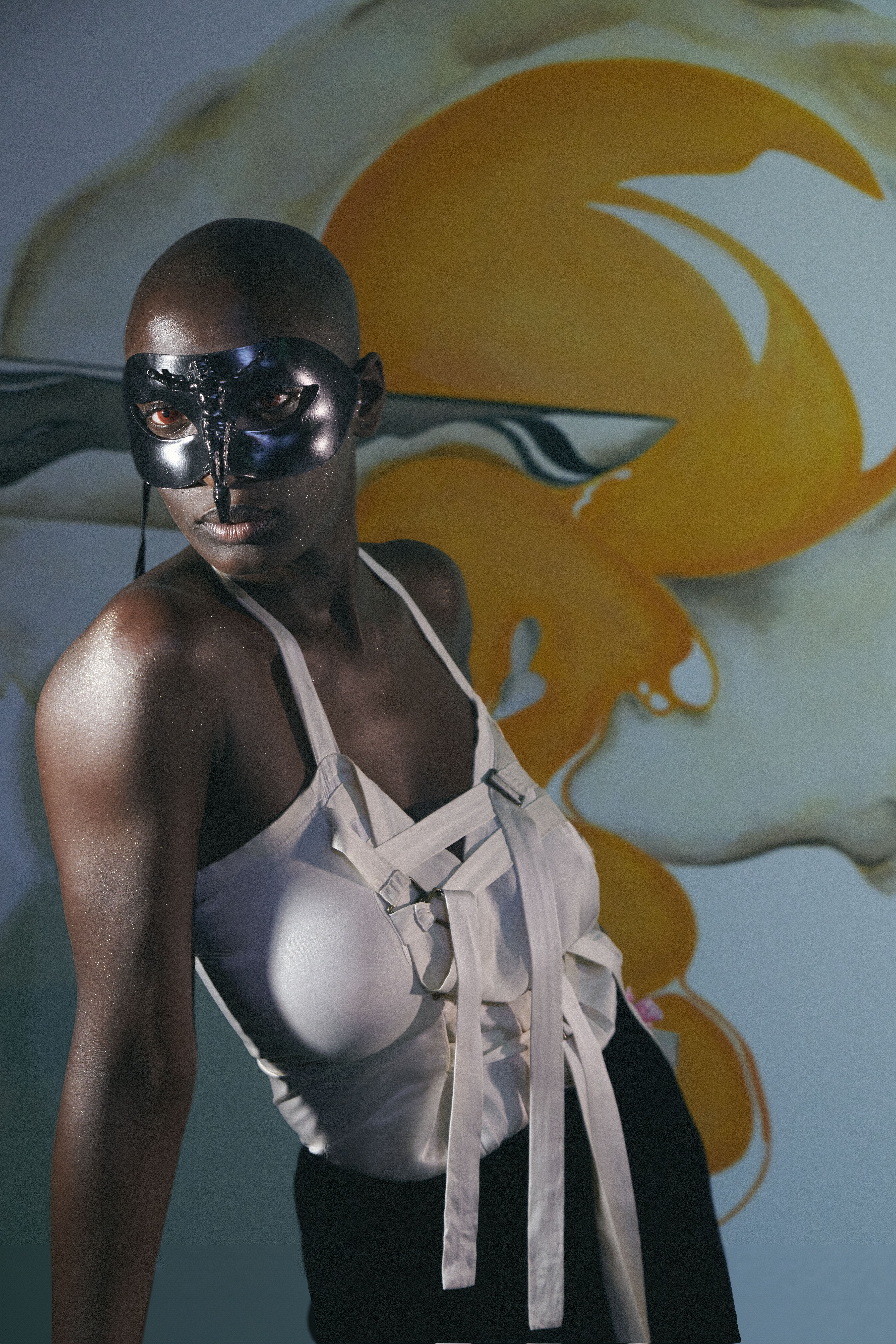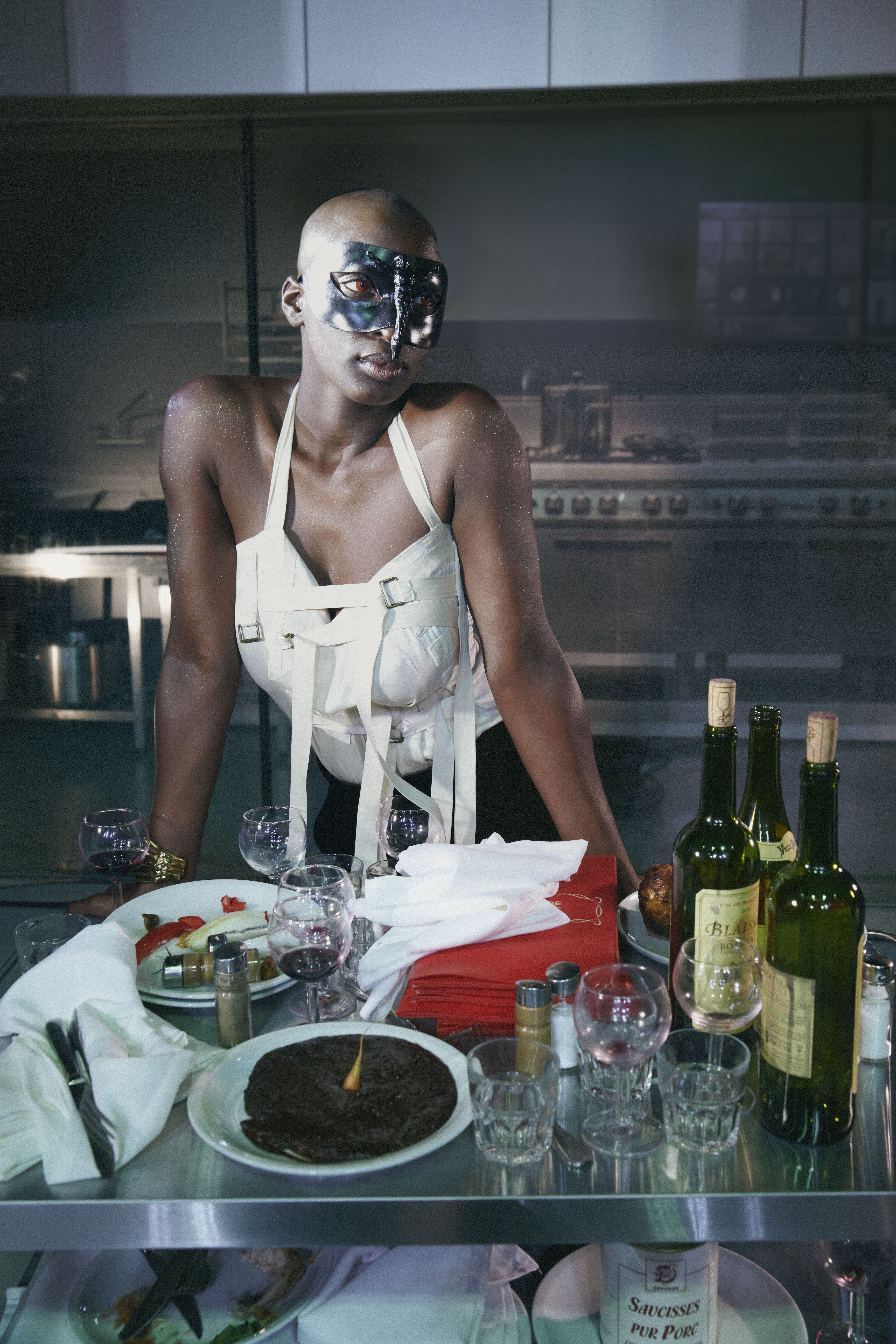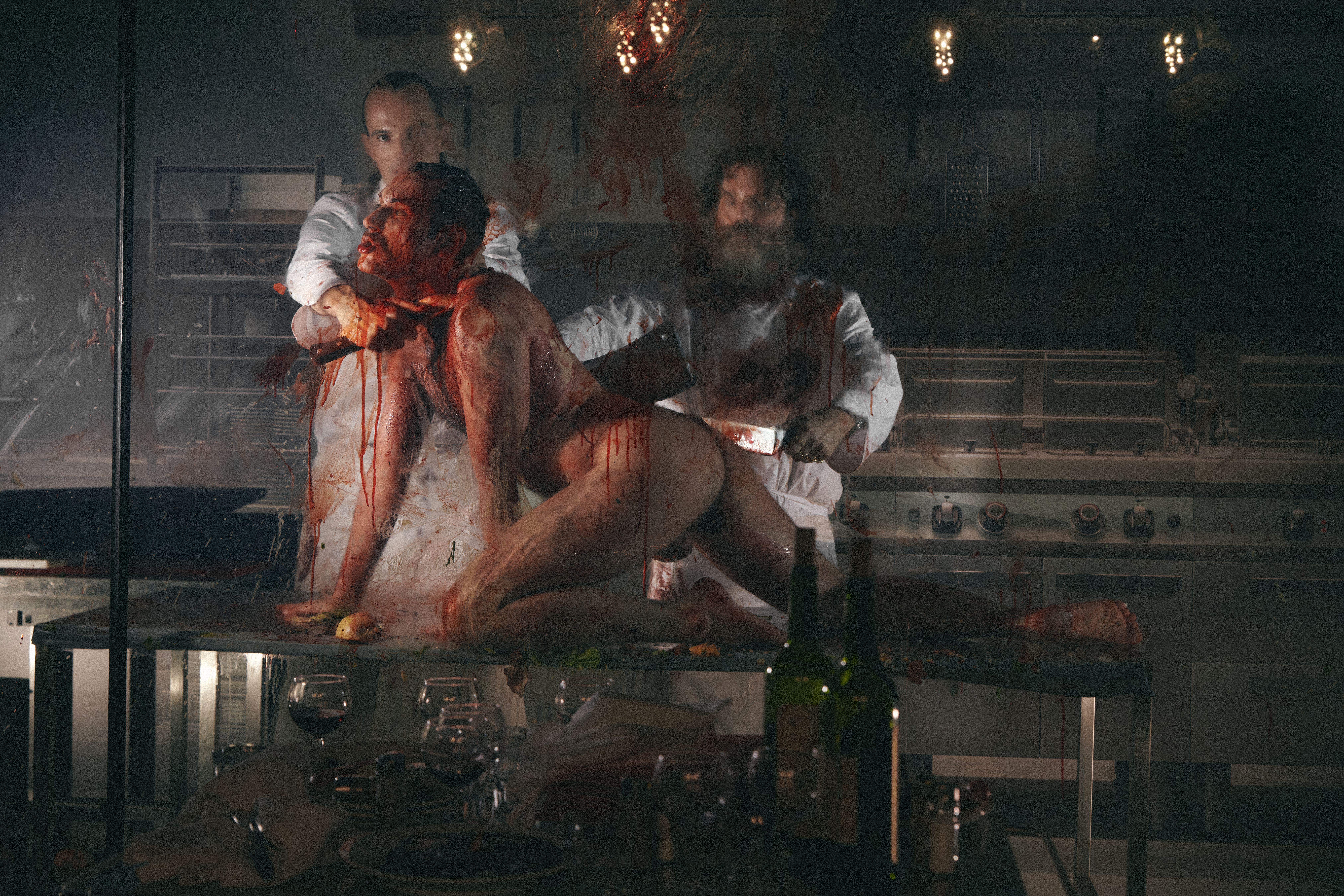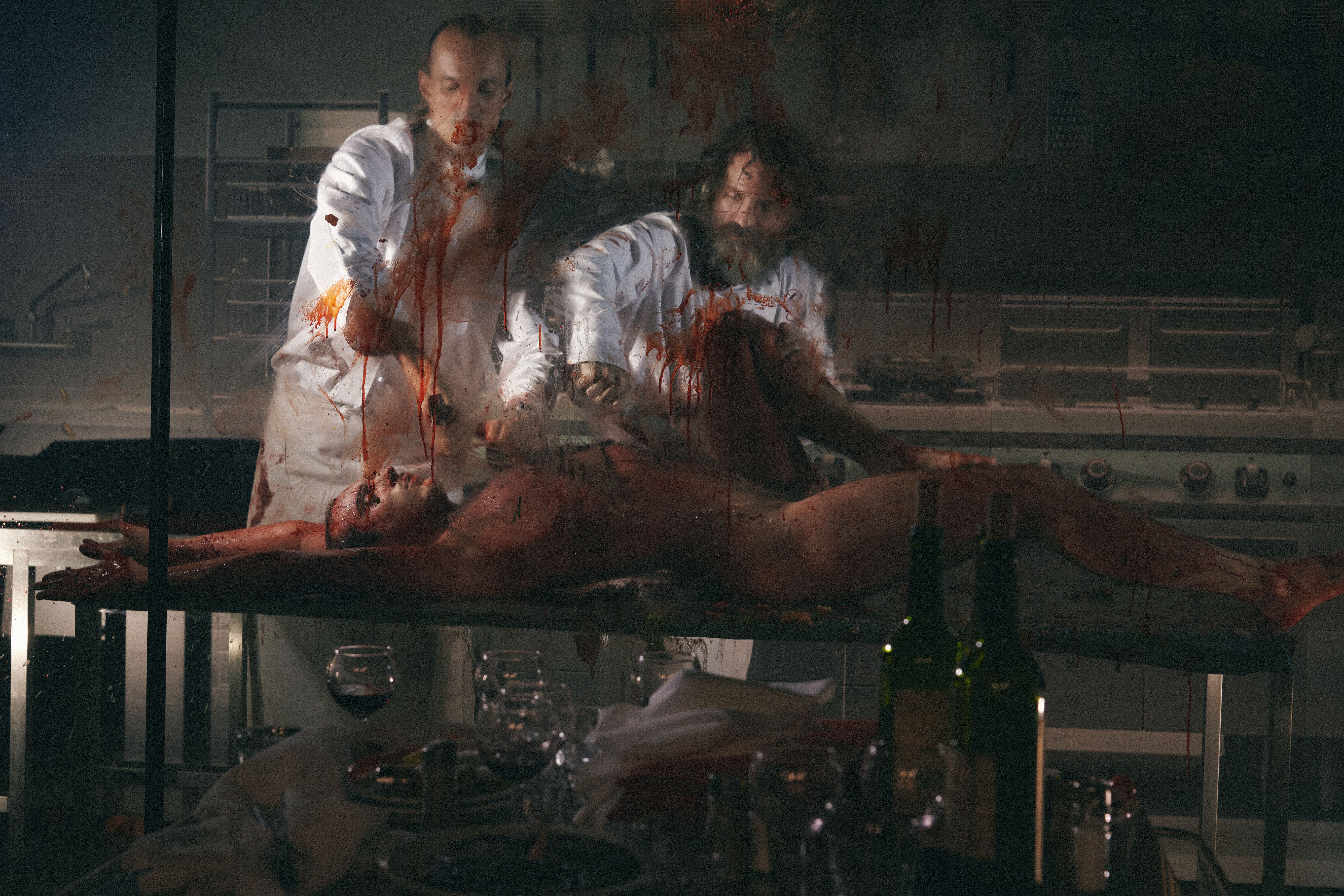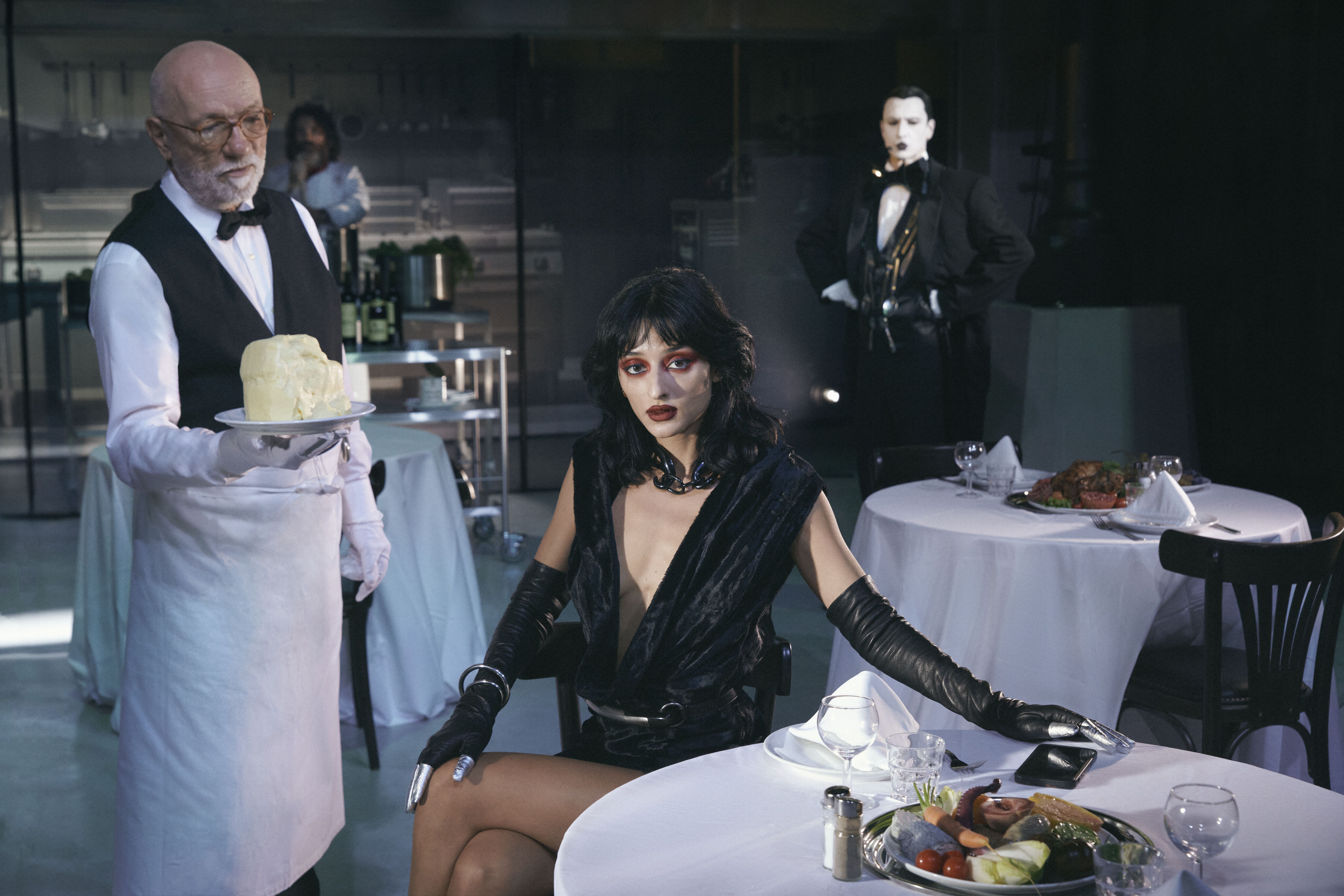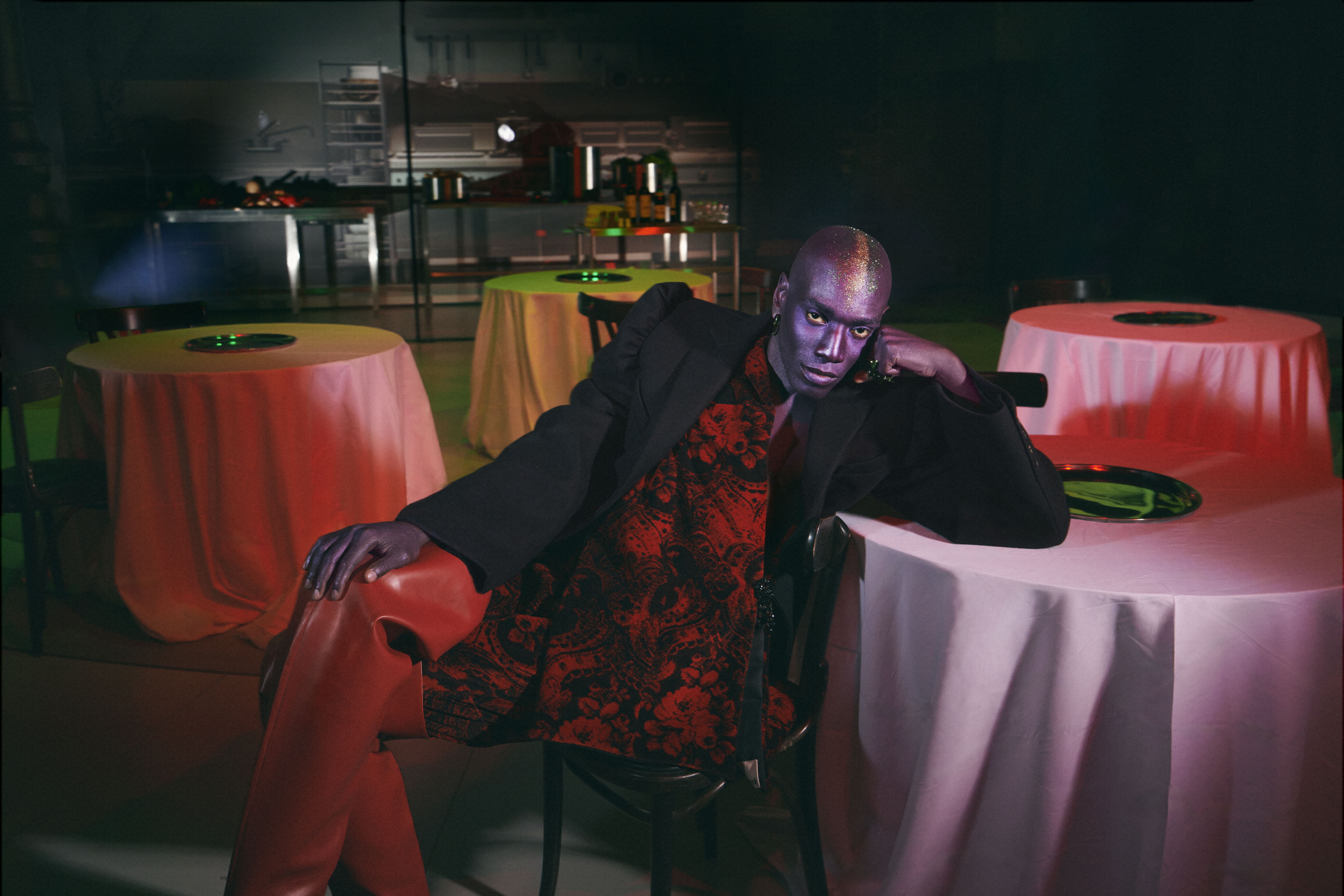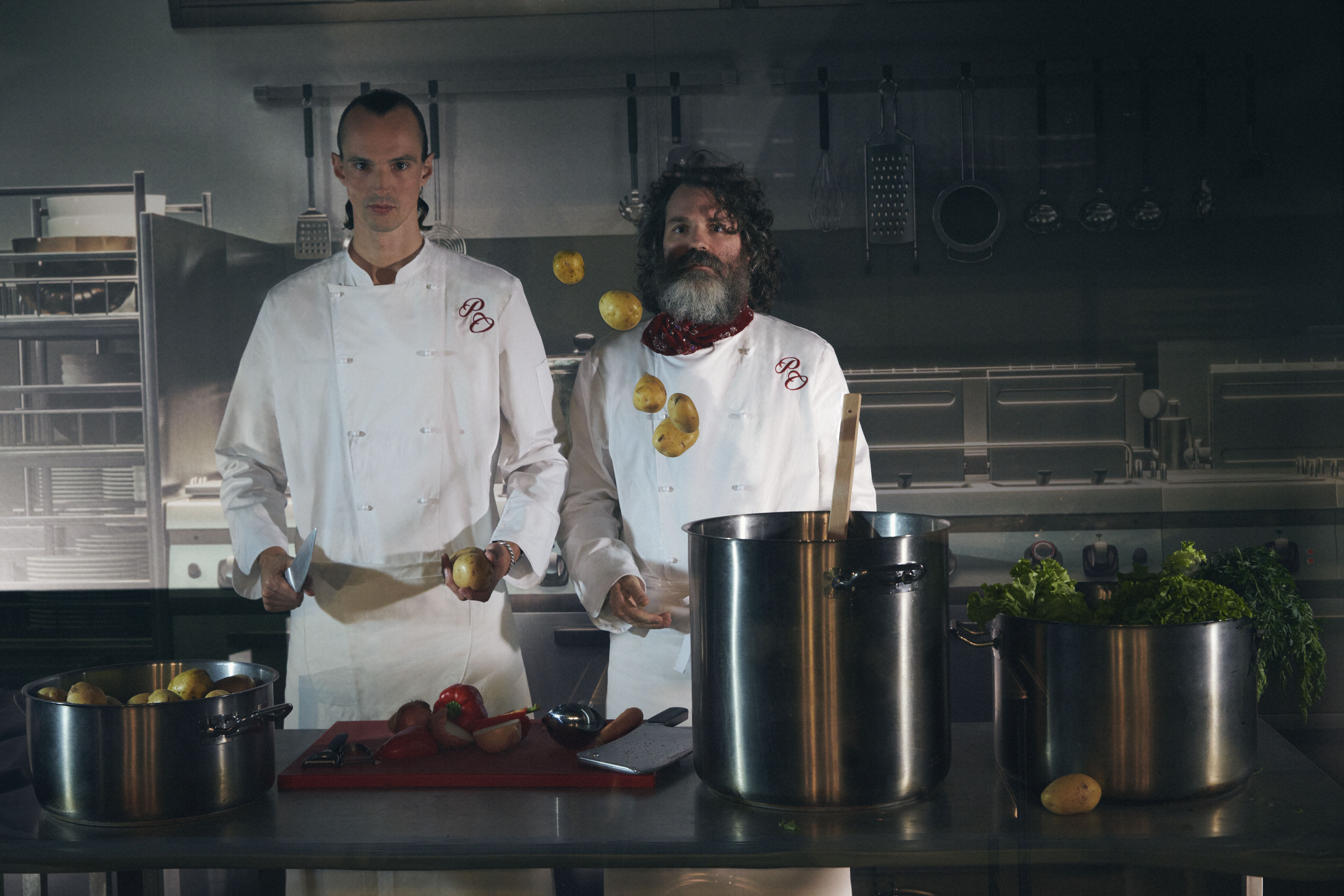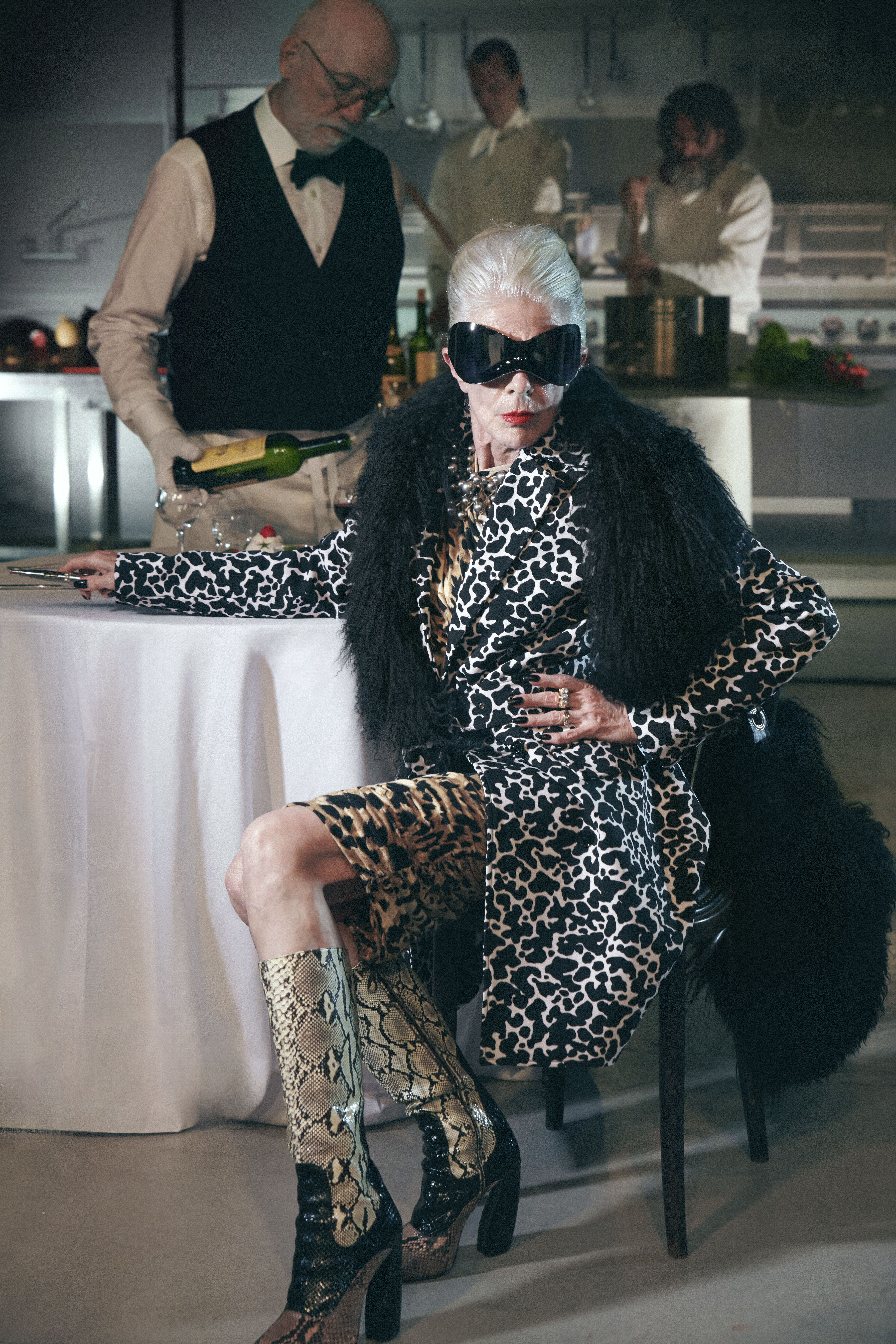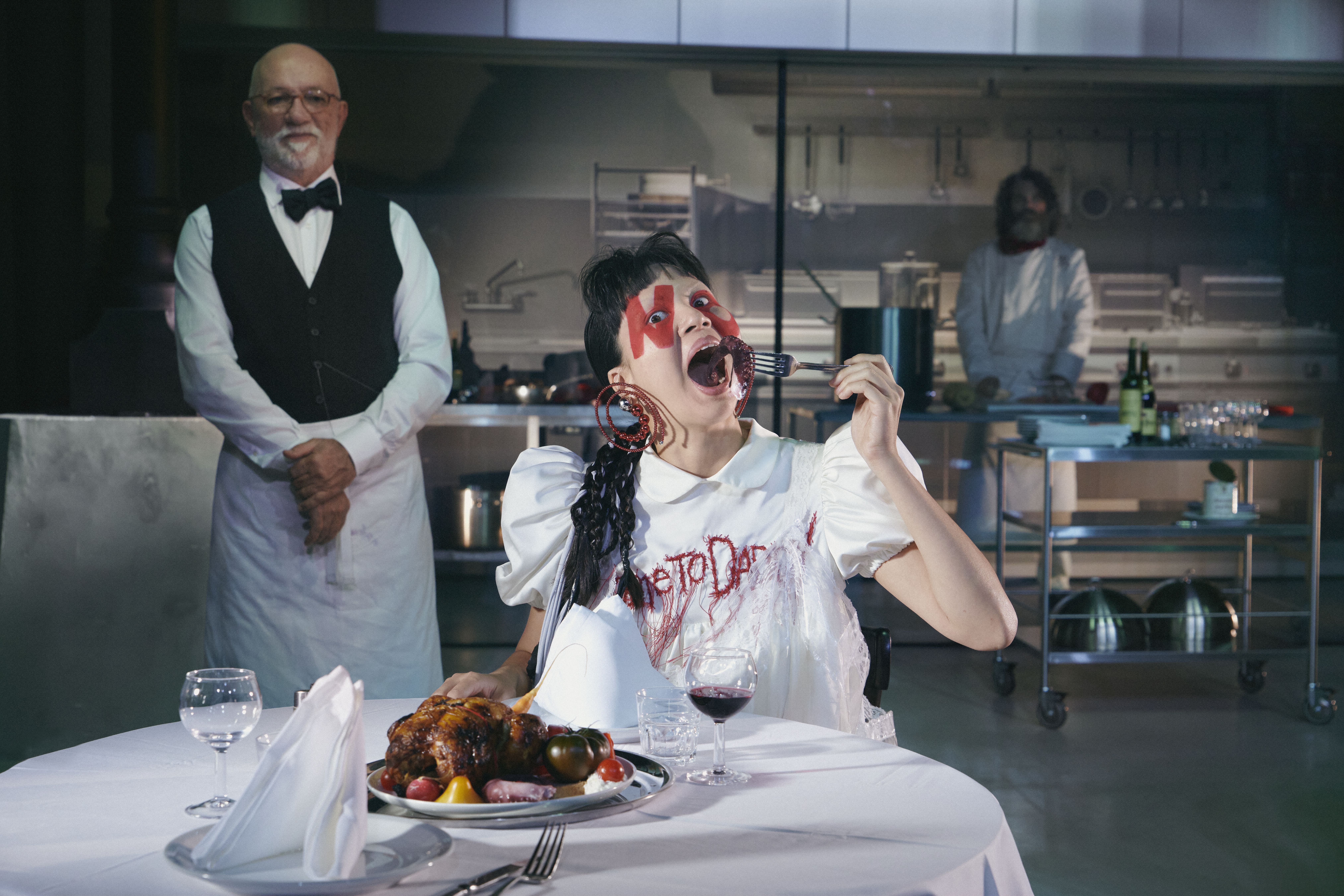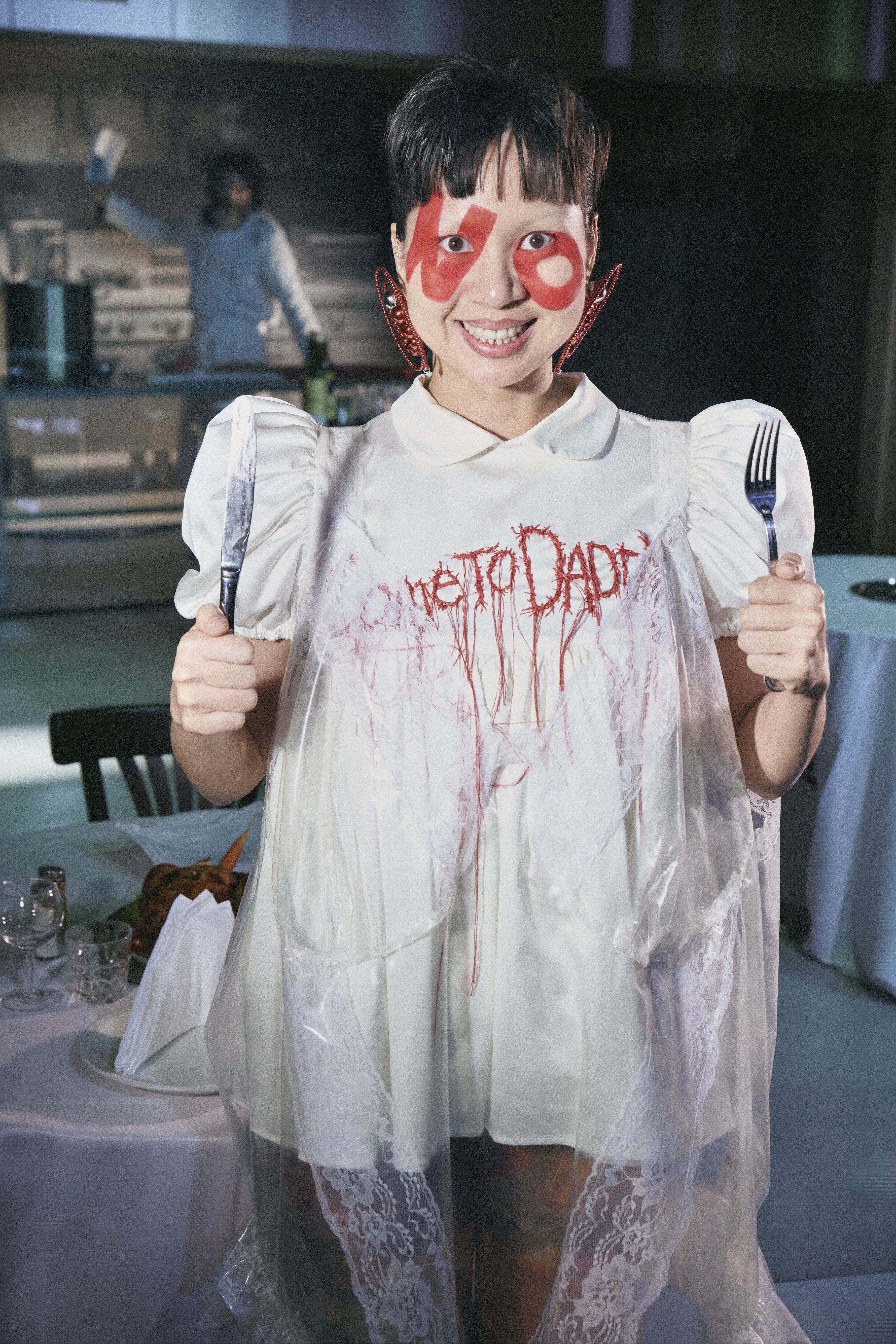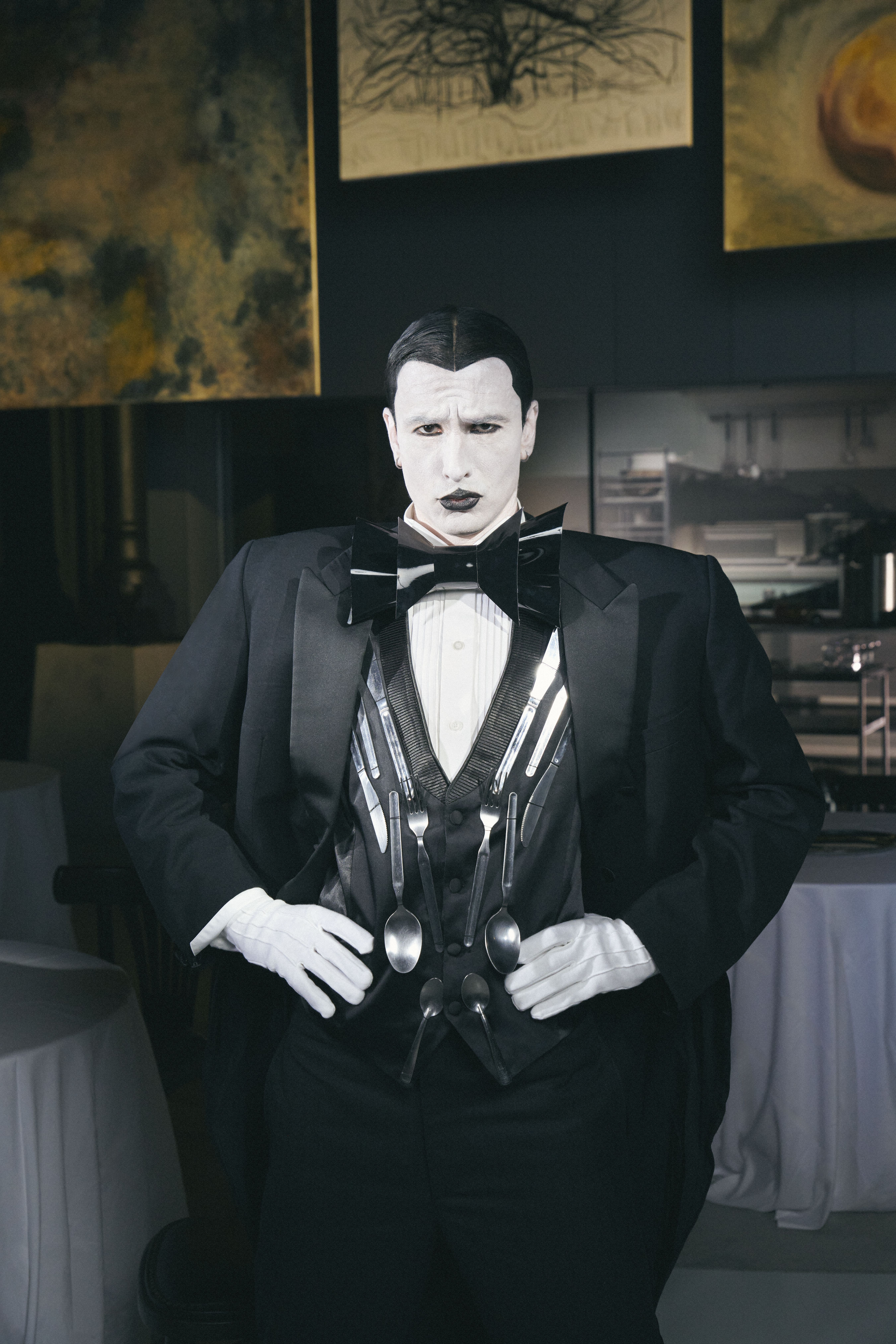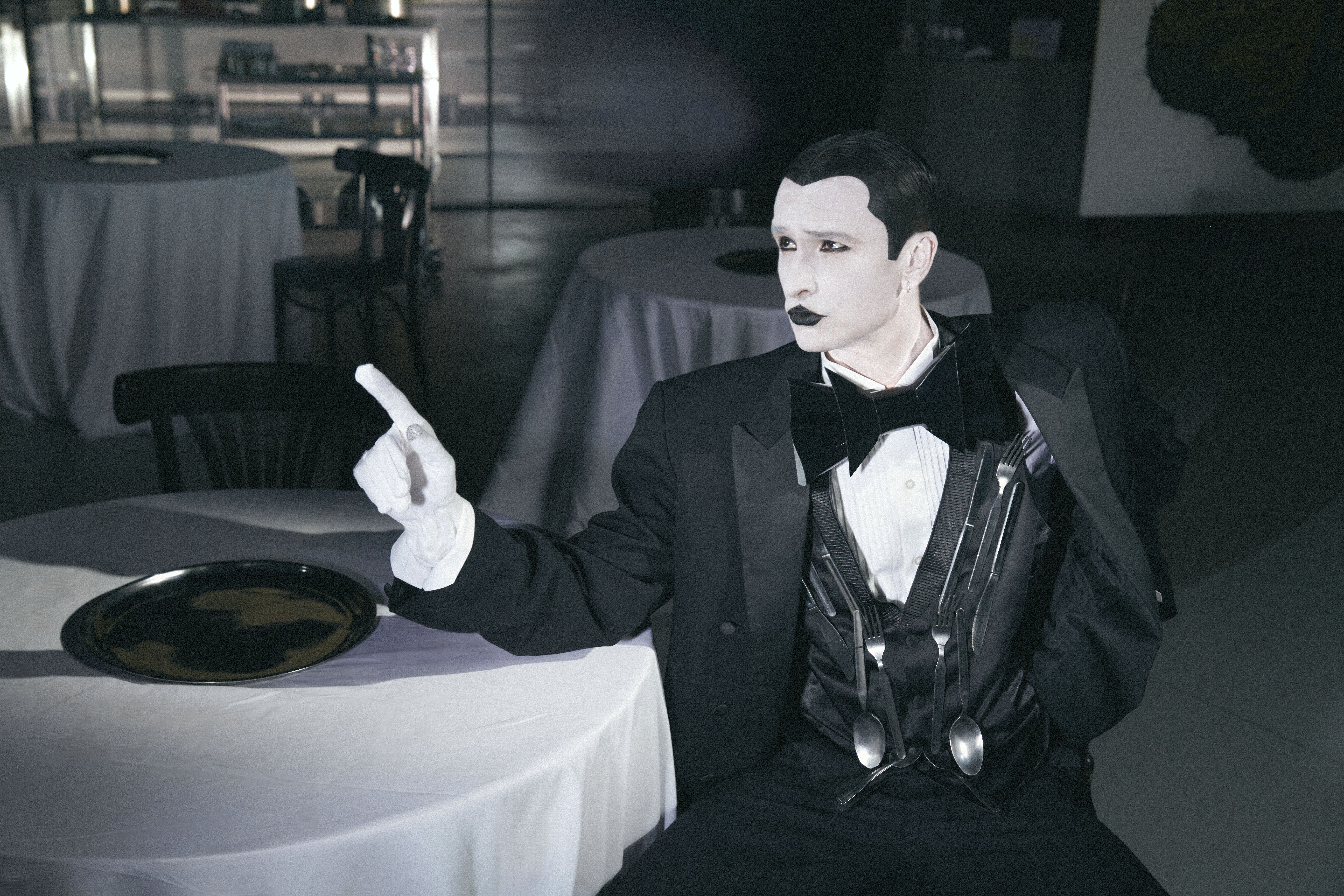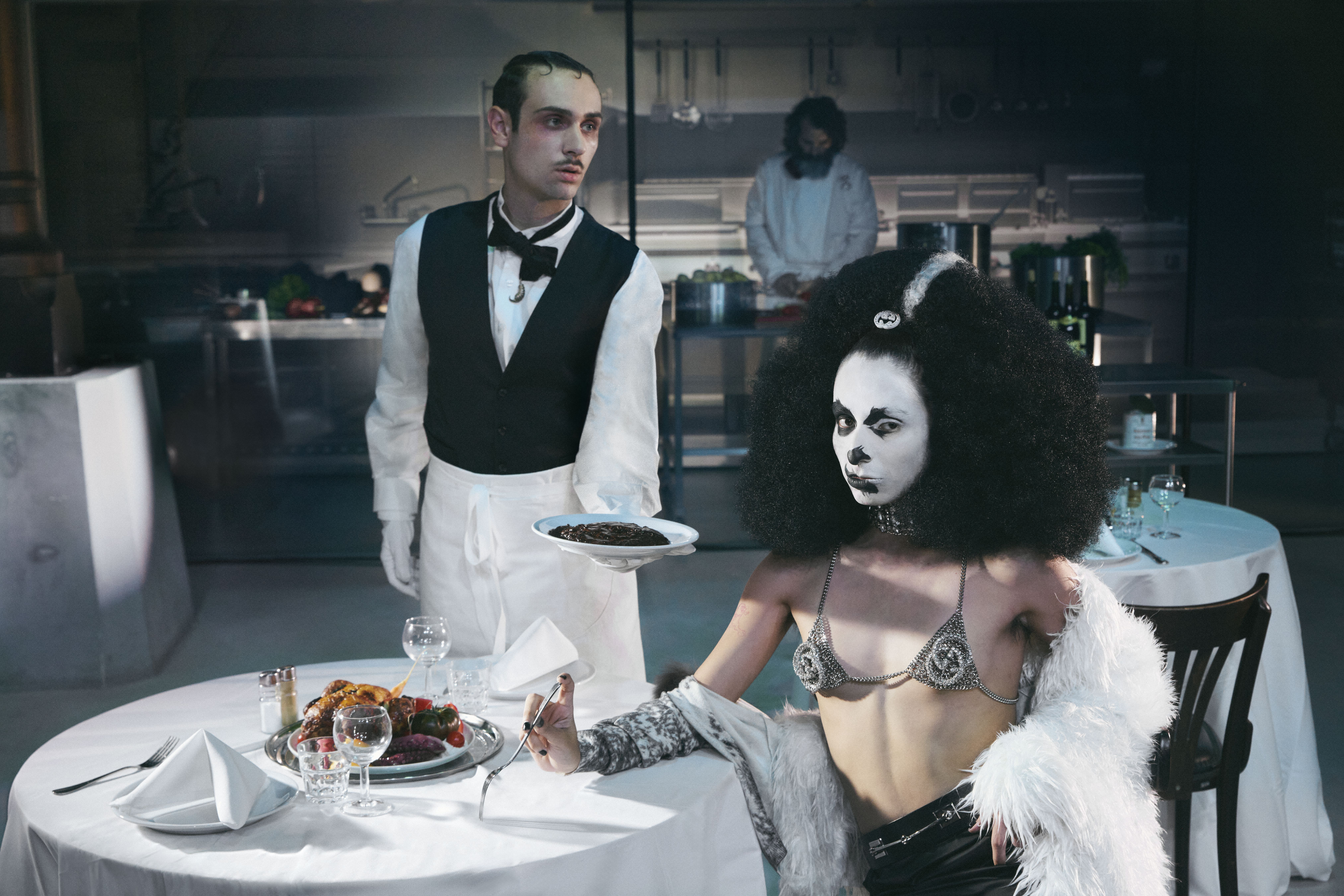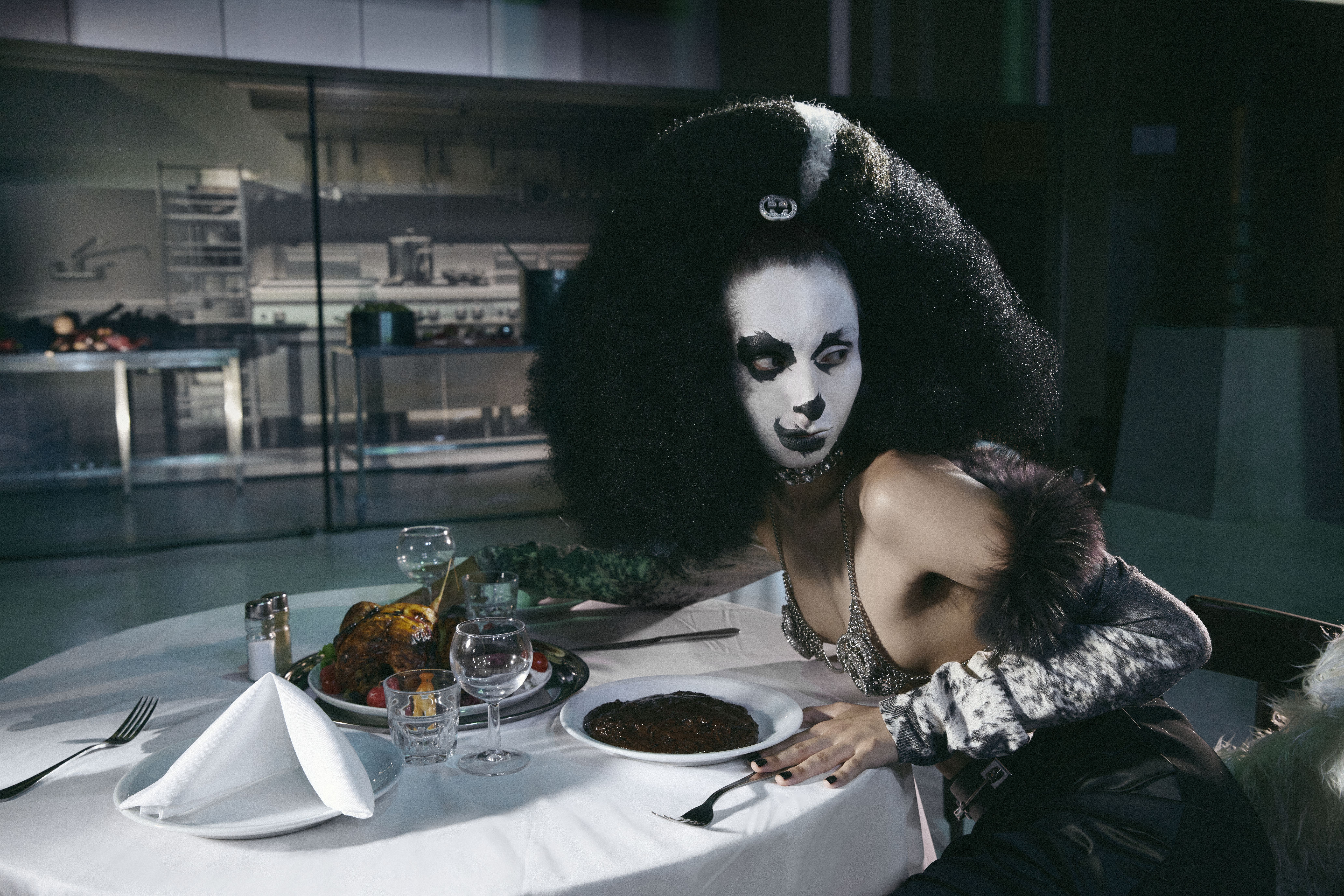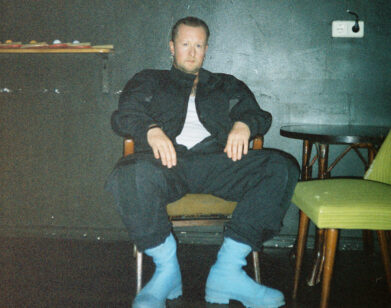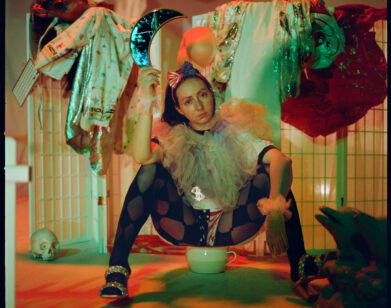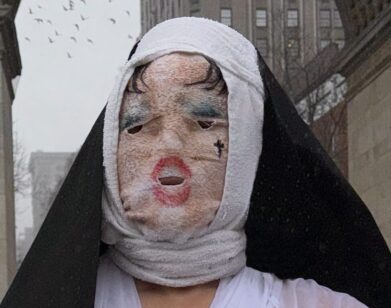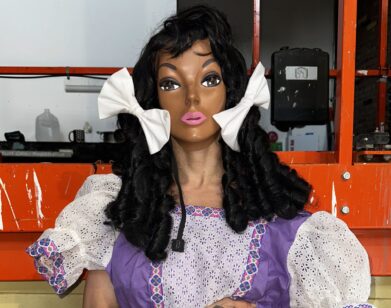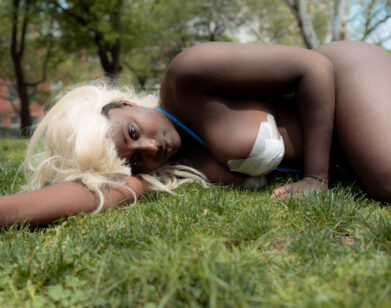DINNER
Will Benedict’s Pandemonium Is Living in a Bubble of Camp
For one night only at the Pinault Foundation in Paris, artist Will Benedict staged an extraordinary piece of avant-garde musical theater called Pandemonium. An homage to—as well as a skewering of—Paris’s rich restaurant and nightlife scene, the L.A.-born, Paris-based artist filled the stage with more than a dozen performers who channeled the decadent personalities that haunted these abodes, from a maître d’ inspired by Klaus Nomi to waitstaff, a chef, and a slew of eccentric patrons. Unsurprisingly, for an artist known for his fantastic visual effects, Benedict designed every inch of the performance, from the costumes to the set. As it turns out, this line of creative congregation runs in the family. Benedict invited John Olson and Nate Young of Wolf Eyes to create the soundtrack for his visual feast, and the three artists chatted a few days after the show to discuss inspirations.
———
JOHN OLSON: How’s our dancer friend, our new BFF?
WILL BENEDICT: Yeah, Delphine [Gaborit] is good. She has such a unique energy for a French woman, so positive and generous of spirit. I feel like I just insulted all French woman including my mom right there. But it’s really not their fault since they have to deal with French men. Et voila, I just insulted everyone in a 3000 km radius of where I live.
NATE YOUNG: What was the casting criteria for Pandemonium like?
BENEDICT: Well I had an amazing casting director, same goes for wardrobe, hair and makeup. So many talented people worked on this. Charles and Pierre were amazing producers. And they’d never done anything like this before. It’s hard to imagine making this outside of Paris since it taps into so many specific talents that are centered here. But basically, we were trying to recreate a chic Parisian restaurant, and when you walk into a restaurant in Paris there are people from all over the world. It’s a cosmopolitan place so we were aiming at some sort of diversity. The hardest was casting straight white men. They were the biggest divas every time.
YOUNG: What do you think of camp?
BENEDICT: Oh, man that’s so hard. Camp is something where it’s hard to know if there’s anything outside of that, you know? We live inside of a camp world.
OLSON: That’s our bubble, our Stephen King bubble.
BENEDICT: Exactly. What’s outside the bubble? Where would we be without it? Seems it would just follow you like your shadow.
YOUNG: Your dad was the Mac Tonight creator as well. Is that right?
BENEDICT: Yeah. That was definitely a big influence on me, especially because I got to go to the sets when I was a little kid. They were huge, immersive, and extremely elaborate. For instance, you know that Big Mac with Mac Tonight playing the piano on top that’s a two-story Big Mac. And then all the buildings around it, done in that sort of German expressionist filmmaking style of weird angles, kind of Fritz Lang, those buildings are massive structures. And that Big Ben kind of clock has cheeseburgers and fries that come out of it. That clock was huge. It’s late ’80s, so it’s before CGI. So walking in there was like walking into that world. It was all around you. The guy with the Moon Man mask, that’s not done in post. That’s robotics. So elaborate. The attention to detail was just phenomenal.
YOUNG: In Dialogue of the Dogs you mentioned your obsession with time as a concept.
BENEDICT: Say you have an object, and over time that object transforms. It changes its meaning and becomes something else.
OLSON: Cave paintings.
BENEDICT: Yeah, that’s a perfect example. The cave paintings became about our projections. Something ultra specific to those people at that time now has a totally different meaning for us, even if we think we understand the anthropological context of the caveman. That just goes for everything to me. I always like to use the example of Christopher Isherwood who did The Berlin Stories and Cabaret. He always said that a table is something that he ate dinner at with his parents, but a tisch, which is the German word for table, is something he would fuck on. So for me, the meat of making stuff is in transforming objects and words. It’s very similar to how you guys are constantly forcing language to do what you want it to do. You’re insisting that there’s this new word like “psycho jazz” to describe things. The way you essentially define new language seems funny, but it’s not just funny, it’s serious. It’s weird how unstable interpretation is, and no matter how accurate we feel our understanding of historical context is, we are way too messy to ever see those things unaffected by the transformation of time.
OLSON: Are you an atheist?
BENEDICT: I mean, politically for sure. In the most obvious way, absolutely. But spirituality is a funny thing. We’ve been talking about how things are funny but in that Zen style of being kind of a super harsh dick, but at the same time you’re a joke master.
OLSON: When my dad would throw a party, all the four-star generals would be at these parties. They were all the most hilarious people on earth. All the high-ranking military officials were fucking hilarious until it was time not to be.
BENEDICT: Yeah. It’s really interesting that humor is also power. There’s a double-edged sword. It’s a tool and it’s almost scary in a way. From diffusing situations to escalating them, humor can kind of do it all.
YOUNG: Or just to be light on your feet, you know?
BENEDICT: Yeah, that’s hard. It’s hard not to be negative about shit. I grew up in a religious household, but Buddhist, so that comes with a certain sense of letting go. When I was 16 my dad died and my mom gave me The Tibetan Book of the Dead. [Laughs]
YOUNG: And that’s where the Japanese drum thing came from, right?
BENEDICT: No, that’s more L.A. Leilah Weinraub’s little sister went and did the Japanese drums with the same group after me. There were only so many offbeat things you could do in L.A. in the ’80s and ’90s. If you were a certain type of parent in L.A. living in Koreatown or Downtown, there were only so many things you could send your kids to do aside from taekwondo or soccer. And this Japanese drum thing, this Taiko thing, was definitely one of them.
YOUNG: All the songs that we worked on that were covers all have a very particular beat. And you not being a musician, I think about that in terms of like, adolescent ethno-pounding.
BENEDICT: Right. [Laughs] Wow, that makes total sense.
YOUNG: It seems very natural. Did you choose those?
BENEDICT: No, that’s all really intuitive. That’s just what I react to. There’s not a lot of thinking when I go through your music. One thing about working with your music though, and it’s a little embarrassing, but I didn’t know how to listen to that kind of music before working with you. I had to learn how to listen. We had commercials on TV in Southern California for this used car dealership called Cal Worthington. He was just some old white dude with a cowboy hat and he would always have a different wild animal with him, but he would refer to the wild animal as his dog Spot. But I could never see Cal Worthington’s face, it was an abstract fog. Then one day, I stared at his face and I was like, “Oh my god, that’s Cal Worthington’s face.” That is still how I see art a lot of the time. For my sister the experience was a bit different. The jingle was, “Go see Cal, go see Cal, go see Cal,” and she thought it was, “Pussy cow, pussy cow, pussy cow,” but it sort of comes to the same thing.
YOUNG: Like disassociation?
BENEDICT: It’s some kind of disassociation. It’s similar to what I said about learning about your music, being able to finally perceive a thing. And it’s a famous idea. In your line of work, it’s the most classic thing that dissonance is disturbing for people until they create the neural pathways that can accept dissonance. The most famous example is Stravinsky’s Rite of Spring.
OLSON: Yeah, it caused a riot.
BENEDICT: Yeah. There were all these sounds that people had never heard before. People went fucking nuts. But the part of the story that they don’t tell very often is that one year later, Stravinsky was the most famous musician in Paris. He’s the hit. Riots are probably pretty good publicity, in France anyways.
OLSON: He demonstrated the end of the romantic era, and he was kind of the birth of modernism.
BENEDICT: Yeah, that’s a transition. Pinpointing modernism is a very interesting thing. Goya? Manet? Or maybe David’s “The Death of Marat”? That’s why I’m into that Dialogue of the Dogs book and into Cervantes. Don Quixote is not just a modern book, it’s a post-modern book. How do you make that in 1605? You know what I mean? The thing about Don Quixote is that Cervantes wrote the book in two parts with maybe a 10 year period in between. And in between, it was such a hit that people started writing fanfiction versions. They would make bootleg Don Quixote stories. So 10 years later, when he writes part two, he folds that fanfiction into the story.
YOUNG: That’s genius.
OLSON: It’s sick, bro. But it still needs a tree.
BENEDICT: It does. It doesn’t come out of nowhere.
Curators | Charles Teyssou and Pierre-Alexandre Mateos
Writer and Director | Will Benedict
Music | Wolfeyes
Choreography | Delphine Gaborit
Costume Designer | Alexia Cayre
Stylist | Myssia Ghosn
Stylist Assistants | Justine Doméjean & Ivane Voustsinos
Casting Director | Rachel Halickman
Production assistant | Graham Hamilton
Makeup | Hugo Villard
Makeup artist assistant | Elora Boccia
Hair style | Jean Dorthu
Hair stylist assistant | Robbe Vermaete
Pictures | Rob Kulisek & Reto Schmid
Customer | Sofie Royer
Waiters | Mikaël Camhaji, George Wolfaardt
Maître d’hôtel | Federico Nessi
Cooks | Lukas Heerich, Fabian Marti
Customers | Andre Atangana, Hocine Choutri, Nogoflani Fofana, PZ Opassuksatit, Maléna Sanchez, Agnès Tassel

